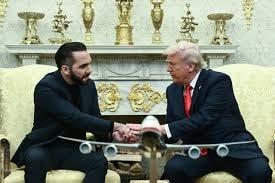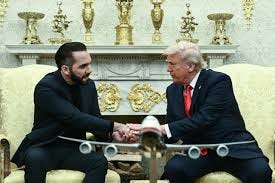Did Trump Defy the Supreme Court?
The Abrego Garcia deportation case is captivating the country, sparking headlines about Trump defying the Supreme Court—claims that may be premature
The ongoing legal and political battle over the deportation of Kilmar Abrego Garcia has dominated headlines in recent days. Garcia, a Maryland resident who entered the U.S. illegally, was sent to an El Salvadorian prison despite a court order protecting him from removal. The headlines have been thick with claims that the Trump Administration is defying the Supreme Court. But a closer look at the Court’s ruling and the administration’s arguments shows that Trump has not violated any Court order… yet.
THE LEGAL TIMELINE: FROM DESIGNATION TO DEPORTATION
On January 21, 2025, President Trump issued an Executive Order designating MS-13 as a Foreign Terrorist Organization. This move granted immigration authorities broader powers to detain and deport noncitizens allegedly affiliated with MS-13.
Subsequently, the administration invoked the Alien Enemies Act to deport numerous alleged MS-13 members to an El Salvadorian prison, including Abrego Garcia. The critical issue here is that Abrego Garcia had a 2019 court ruling that specifically blocked any potential removal to El Salvador, his home country. The court found that Garcia had credible fears of being retaliated against if he were to go back to El Salvador. The Trump team, when asked about Garcia’s deportation, stated that he was deported to El Salvador because of an “administrative error.”
THE DISTRICT COURT’S DIRECTIVE AND SUPREME COURT INTERVENTION
A United Stated District Court ordered the Trump administration to “facilitate and effectuate” Garcia’s return to the United States by April 7. Seeking relief from this directive, the administration filed an emergency appeal to the Supreme Court, where the Chief Justice temporarily stayed the District Court order until the Supreme Court could properly review the case.
On April 10, the Supreme Court issued their ruling, upholding the “facilitate” requirement, but ordered the District Court to clarify what “effectuate” means. The Supreme Court emphasized that the scope of the term “effectuate” should be clarified with “due regard for the deference owed to the Executive Branch in the conduct of foreign affairs.” In other words, possible separation-of-powers concerns arise if the District Court order is too strict on the Executive Branch.
Nevertheless, the Supreme Court affirmed that the District Court order “properly requires the Government to ‘facilitate’ Abrego Garcia’s release from custody in El Salvador and to ensure that his case is handled as it would have been had he not been improperly sent to El Salvador.”
COMPETING INTERPRETATIONS AND LEGAL MANEUVERING
Trump’s team has adopted a narrow interpretation of what “facilitate” means under the Court’s directive, arguing that it simply requires the U.S. to accept Garcia if El Salvador releases him, rather than taking active steps to secure his release. In contract, the District Court expects the administration to pursue Garcia’s return proactively, requiring daily updates on their efforts. The Supreme Court is likely to resolve this dispute over the term’s meaning. For now, the administration’s approach has not technically violated any court orders, but it has created a new legal question regarding the extent of their obligations.
LEGAL STRATEGY AND POLITICAL RISK
The administration’s reliance on a technical, passive reading of “facilitate” may be legally defensible for now, but it may clash with the public’s expectations. Democrats are framing this as Trump defying the judiciary, and many Americans will interpret “facilitate” as requiring real action—in line with what the District Court expects.
Public perception matters. Even if the legal argument may hold some weight, the optics of appearing to undermine judicial authority could alienate voters who otherwise support Trump’s immigration agenda.
The administration’s current strategy—clinging to a narrow legal ledge—leaves it isolated politically. Trump has historically shown pragmatism when public sentiment shifts, as seen most recently with his “permanent” tariffs. A similar course correction here—obtaining Garcia’s return to the United States—would align with his pattern of retreating from untenable political positions and resolve this PR nightmare before it starts affecting public opinion.
Sometimes, it’s okay for a President to step off the ledge and admit defeat—especially when the country isn’t standing there with him.




